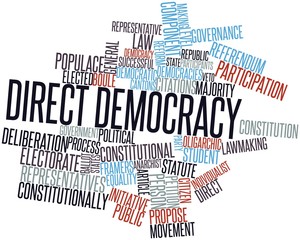
he main aim of this course is to examine the use and the role of direct democratic activities in Eastern and Western European countries in a comparative perspective. The course will deal with the theory and practice of direct democracy in European states as well as with the normative dimensions of the referendum and "community initiative". The main goal is not only to understand and explain how these direct democracy instruments work, but also to answer the question about possibilities and perspectives of using them in present-day Europe, and what follows - also in the European integration process.
Direct democracy - defined as a set of procedures giving all citizens the right to make decisions biding the state - is considered to be the most pure form of democracy. The referendum and the community initiative are the most important and the most frequently used forms of direct democracy. There are also several other instruments of direct democracy such as consultation, popular veto, national (popular) assembly or recall. In last decades, referenda have been widely held to decide on important political issues.
Switzerland is certainly the world leader in using direct democracy tools. The referendum and the community initiative institutions have strongly shaped the Swiss political system and the history of this small federal state in general. But also other West European countries - like France, Italy, Denmark - widely use direct democracy tools including referendum and popular initiatives.
The World Wars and the Cold War slowed down if not stopped the democratization in many parts of the world, Europe being no exception. However, the European integration process in the western part and the fall of the Berlin Wall in the eastern part gave raise to a new democratization wave and enhanced the use of direct democratic instruments in Europe. In addition to West European states, an increasing number of East European countries has introduced direct democratic instruments after 1989. The proof of democratization are undoubtedly referendums on the accession to the European Union, which between March and September 2003 were held in nine candidate countries, except for Cyprus. The role of a referendum gains on importance in Europe and calls for a better understanding of its functioning.
- Nauczyciel: Magdalena Musiał-Karg